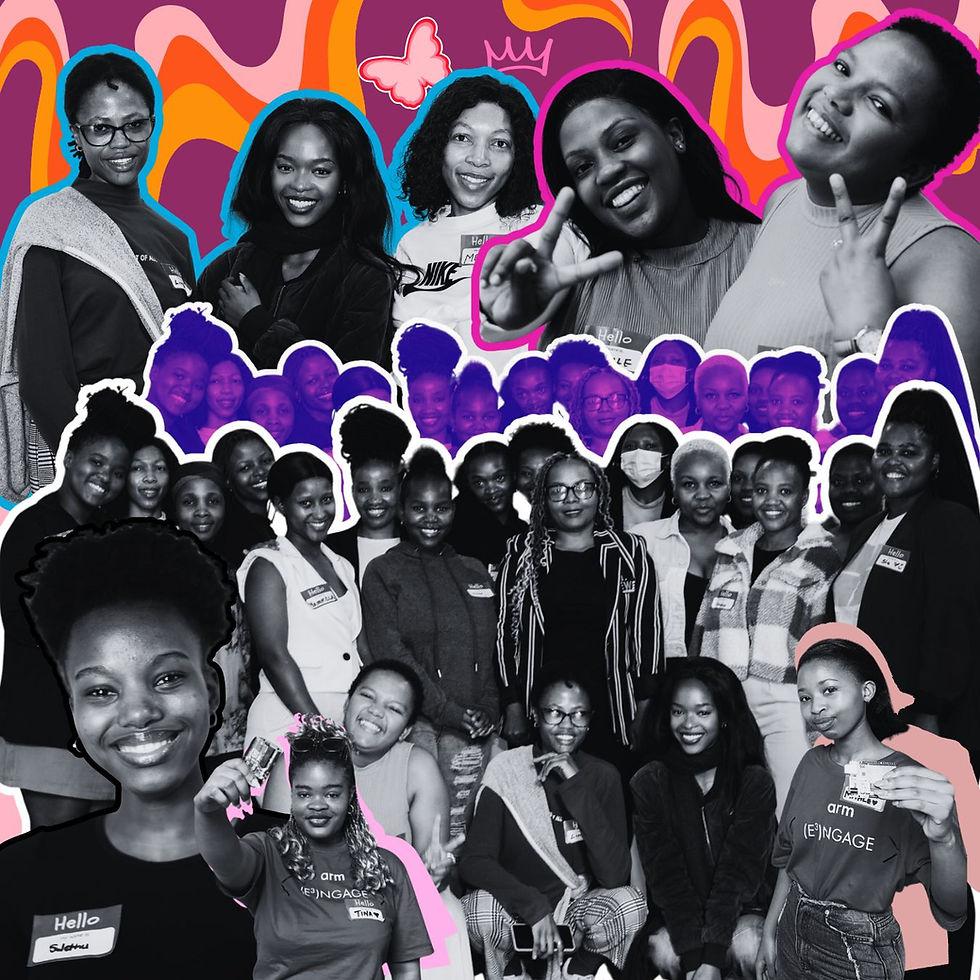Women in Engineering: Reclaiming a Legacy and Building the Future in Africa
- Anda Ngcaba
- Jun 21, 2024
- 3 min read
Written By Sia Mausi

The air crackled with an electric energy at the recent Women in Engineering event hosted by the Cortex Hub in collaboration with Arm(E3)NGAGE. This wasn't your typical conference – it was a vibrant space where students from diverse engineering disciplines, software engineering, the telecoms industry and mechanical engineering, came together to be inspired by the brilliant Zukiswa Kulu, a lecturer in the department of built environment.

Kulu's journey itself is evidence of the power of defying expectations. Having transitioned from a Quantity Surveyor to her current role, She embodied the spirit of exploration and self-empowerment that resonated deeply with the women in the audience. But Kulu's message went far beyond personal journeys. She challenged the very definition of engineering, urging a shift from a strictly scientific approach to one that embraces and integrates indigenous knowledge systems (IKS). Imagine engineering not just as the application of pre-defined principles, but as a conversation with nature, a dance where we learn from the environment and adapt our interventions to respect its delicate balance. This perspective resonated with the room, finding fertile ground in the African concept of Animism, where everything – from the tallest baobab to the tiniest grain of sand – possesses a life force, all intricately connected.

Kulu's words painted a powerful picture. She spoke of pre-colonial huts, testaments to a deep understanding of nature's ingenious designs. These structures, built with readily available materials, stood as a stark contrast to the often-invasive, disruptive methods employed inmodern construction. By embracing biomimicry, drawing inspiration from nature's own solutions, we can create a more sustainable future, one where engineering works with, not against, the environment.
But perhaps the most transformative aspect of Kulu's talk was her dismantling of the artificial barrier of gender in African engineering. She emphasised the historical reality – women have always been present in the world of building and design. Their expertise in constructing huts for initiation ceremonies, for instance, speaks volumes about their skills and ingenuity. Collaboration, not division, is the cornerstone of African culture, and this extends to all aspects of society, including engineering. Kulu called for a return to these values, where roles are determined by individual strengths and capabilities, not by preconceived notions of gender.

The importance of events like Women in Engineering cannot be overstated. These gatherings are more than just conferences; they are crucibles where women in engineering can connect, share their stories, and challenge the status quo. The TED Talks that followed Kulu's lecture served as a powerful next step. The room pulsed with energy as inspiring women like Racheal Aye, Debbie Sterling, and Naomi McGregor took the stage, each with their unique perspective on the world of engineering. The lively dialogue that erupted – so intense that the attendees needed a gentle nudge to break for lunch – was a testament to the event's success.

The Cortex Hub event is a microcosm of a much larger movement sweeping across Africa. Women are reclaiming their rightful place in engineering, shaping a future that is not only innovative and sustainable, but also one that honours the rich tapestry of African heritage. These women, past and present, are a clarion call to all – to integrate traditional knowledge with modern advancements, to break down artificial barriers, and to co-create a future where engineering serves not just humanity, but the planet in its entirety.

But the story doesn't end here. This is a call to action. Imagine a future where young girls growing up in villages across Africa see themselves not just as future doctors, teachers, or lawyers, but also as engineers – the architects of a sustainable future. Imagine classrooms buzzing with discussions that weave together the wisdom of elders, the power of scientific inquiry, and the boundless creativity of young minds. This is the future we can build together, a future where women in engineering are not just celebrated, but empowered to lead the way.

Let this be the beginning of a conversation, a journey where we explore the intersection of tradition and innovation, where the voices of women in engineering ring loud and clear, shaping not just the physical landscape of Africa, but the very soul of the continent itself.




Comments